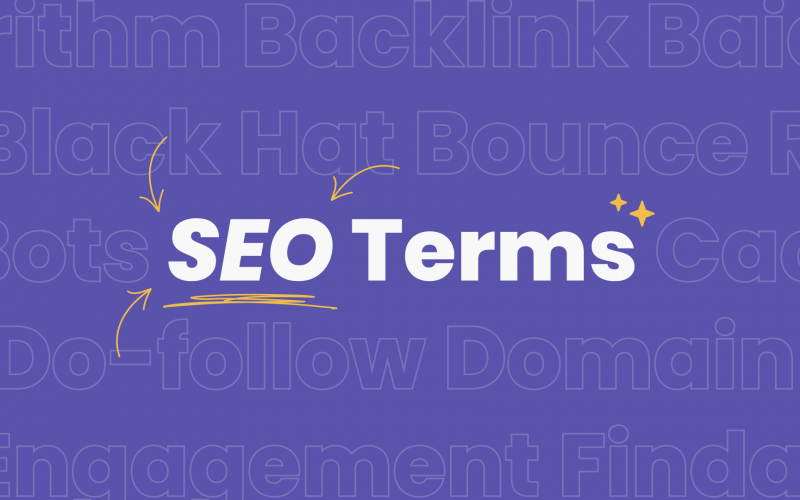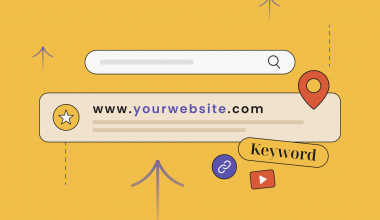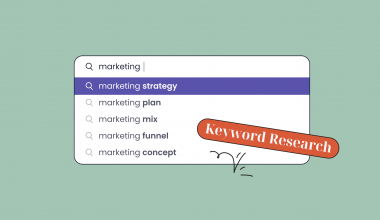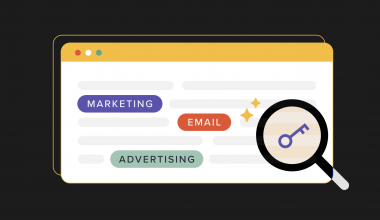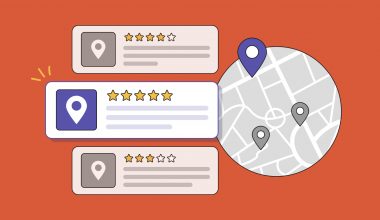Search engine optimization or SEO can be an incredibly intimidating term. It consists of a number of technical and IT-related jargon that could be confusing to beginners. To fully comprehend the workings of SEO, one needs to understand the terminology behind SEO first.
If you’re interested to learn more, this SEO Glossary is a good place to start.
A
Algorithm – A complex set of rules, computer programs and processes that help search engines to retrieve data and deliver the results for the queries.
B
Backlink – A hyperlink that links from one webpage to another website.
Baidu – A famous search engine in China.
Bing – A search engine owned and operated by Microsoft.
Black Hat – Risky tactics or illegal practices that violate search engines’ terms of service.
Bounce Rate – The percentage of visitors visiting your website and leaving without visiting another page.
Bots – Aka crawler and spider. A kind of program that search engines use to crawl the web and look for relevant and useful content to update the search engine’s index.
C
Cache – A type of technology that temporarily stores data such as images
Clicks – How often someone clicked a link from a search engine to your site
Click-through-rate – The rate in percentage of users clicking into an organic search result. The calculation is Clicks divide by Impressions.
CMS – Stands for Content Management System, it is a web application that allows people to create, write, edit and publish digital content.
D
Do-follow – A link that doesn’t have the “no-follow” aspect.
Domain – A website address that commonly ends in .com, .org or .net. For example, cubeevo.com
E
Engagement – Data that represents how searchers interact with your sites on search engines
F
Findability – How easy can one content be discovered.
G
Google – The most used search engine in the world.
Google Analytics – A web program that is used to track audience behaviour, traffic and content performance.
Google Search Console – It provides tools and insights that help site owners to improve visibility and presence on SERPs.
Guest Blog – A link-building tactic that involves creating engaging content on others’ websites and backlink to your own website.
H
Heading – Heading tags (H1-H6) separate headlines from the content
Headline – The title of your content.
I
Impressions – The frequency of your website seen on search engine
Inbound Link – Aka backlink, is generally used by the receiving ends. It refers to links that come from another site to your website.
Internal Link – Links on the same sites, generally point to different web pages on the same website
K
Keyword – The word or phrases that marketers target to match their website content to the queries.
L
Link Building – A tactic of getting highly relevant and trusted websites to link to your own website in hopes of optimizing your search visibility and organic search rank.
Long-tailed Keywords – High specific keywords that indicate high buying intention. For instance, “black Huawei P30 phone cover”.
M
Meta Description – A short description of webpage content that is often shown in the SERPs.
O
Off-page SEO – Optimizing the website’s search rankings outside of the website such as link building and promotion tactics.
On-page SEO – All the optimizing activities that take place within the website itself. It includes producing highly relevant and valuable content.
Organic Search – All the unpaid results that appear on SERPs
Outbound Link – A link from your website that directs users to another website.
P
Page Speed – The total amount of time needed for your website to load out completely.
Q
Query – The word or phrases users type in the search engines.
R
Ranking – The position of the webpage on SERPs.
S
Search Engine – A computer program that allows users to retrieve information by inputting the query.
SERP – Stands for Search Engine Result Page, which is essentially the display of results after users enter the query.
Short-tailed keyword – General search keyword that only consists of a word, such as “food’, “cafe”, etc.
Sitemap – A list of pages of a website that show which pages lead to which.
Sitewide Links – A link that appears on every page of a website.
Subdomain – A separate section of a domain.
T
Time on Page – The time users spend on a particular web page.
Title Tag – The main headings in blue shown on a SERP.
Traffic – The number of people who visits your website
U
User-Generated Content (UGC) – Content that is created by the users or customers instead of the owner.
User Experience (UX) – The overall experience and feeling a user feels after interacting with a brand’s online touchpoint.
URL – The ‘address’ of a webpage found on top of your browser’s address bar
V
Voice Search – A voice-activated technology that allows users to retrieve data or conduct research via speaking into the device.
W
White Hat – Ethical tactics that comply with search engines’ guidelines.
X
XML – Which stands for Extensible Markup Language, is a kind of language search engine used to understand web content.
This SEO Glossary would definitely come in handy when you are learning and doing your SEO.



